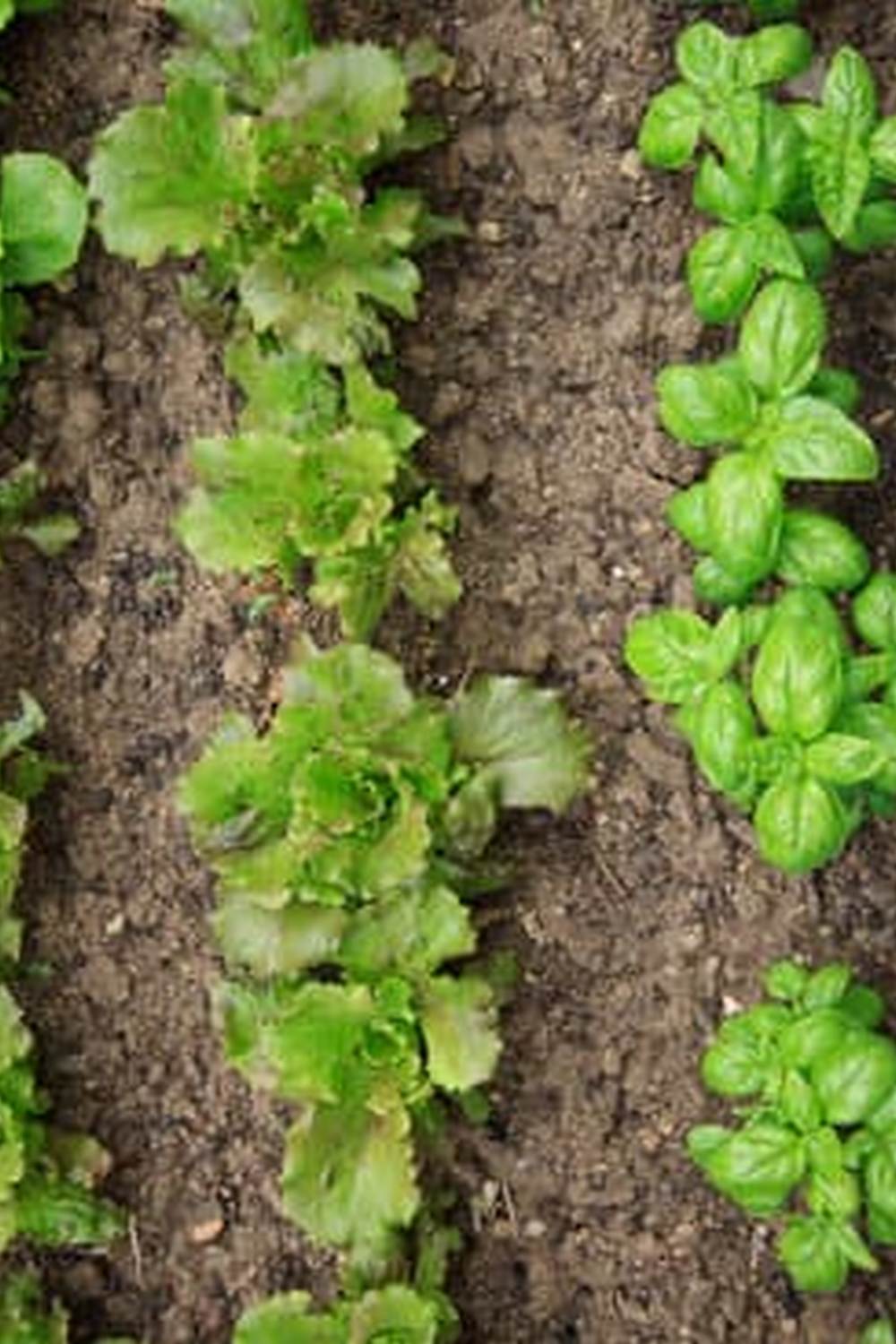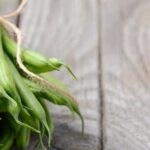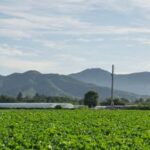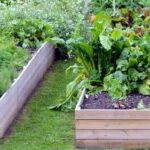Are you looking to start a vegetable garden in South Africa? Whether you’re a beginner or an experienced gardener, these vegetable gardening tips South Africa will help you grow a successful and bountiful garden. With the right knowledge of the climate, soil conditions, and essential tools, you can enjoy the satisfaction of growing your own fresh produce right in your backyard.
South Africa boasts a diverse range of climates and soil types, making it an ideal location for cultivating various vegetables. From the Mediterranean-like climate of the Western Cape to the subtropical regions of KwaZulu-Natal, there are plenty of opportunities to grow a wide array of vegetables throughout the country. Understanding how these factors affect your garden is crucial to success.
In this article, we’ll delve into everything you need to know about vegetable gardening in South Africa, from selecting the right vegetables for your specific region to dealing with common pests and diseases that can affect your crops. You’ll also learn about sustainable and eco-friendly practices that can help make your garden thrive while minimizing its impact on the environment.
Whether you’re new to gardening or looking to expand your knowledge, these tips will set you on the path to a rewarding vegetable garden in South Africa.
Selecting the Right Vegetables for Your South African Garden
When it comes to vegetable gardening in South Africa, selecting the right vegetables for your garden is crucial for a successful harvest. The unique climate and soil conditions in South Africa require careful consideration when choosing which vegetables to grow. Here are some tips for selecting the right vegetables for your South African garden:
- Consider the climate: South Africa has diverse climates, ranging from Mediterranean to sub-tropical. It’s essential to select vegetables that are well-suited to the specific climate of your region. For example, in the Western Cape, where the climate is Mediterranean, you can consider growing tomatoes, peppers, and eggplants.
- Choose drought-resistant varieties: Many parts of South Africa experience water scarcity, so it’s important to select vegetables that are drought-resistant. Look for varieties that are adapted to arid conditions, such as sweet potatoes, okra, and cowpeas.
- Take note of soil types: Different regions in South Africa have different soil types, from sandy soils in coastal areas to clay soils inland. Before selecting vegetables for your garden, assess your soil type and choose vegetables that thrive in those conditions. For example, leafy greens like spinach and Swiss chard do well in sandy soils.
By carefully considering the climate, water availability, and soil conditions in your area, you can select the right vegetables that will thrive in your South African garden. Whether you’re a beginner or an experienced gardener, these vegetable gardening tips for South Africa will help you make informed decisions about which vegetables to grow in your garden.
Understanding the Climate and Soil Conditions in South Africa for Successful Vegetable Gardening
When it comes to vegetable gardening in South Africa, understanding the climate and soil conditions is crucial for successful cultivation. South Africa has a wide range of climates, from Mediterranean in the Western Cape to subtropical in the north, and this diversity greatly influences the types of vegetables that can be grown. In addition, the soil composition varies across different regions, so it’s important to choose vegetables that are well-suited to your specific area.
In South Africa, the general rule for vegetable gardening is to plant cool-season crops in the winter and warm-season crops in the summer. Cool-season vegetables such as broccoli, cauliflower, and carrots thrive in cooler temperatures, while warm-season vegetables like tomatoes, peppers, and squash prefer warmer conditions. Understanding these seasonal variations will help you plan your planting schedule accordingly.
Soil conditions also play a critical role in the success of your vegetable garden. Some areas may have sandy or clay soils which may require amending with organic matter to improve fertility and drainage. Conducting a soil test before planting can provide valuable information about pH levels and nutrient deficiencies, helping you make informed decisions about soil amendments and fertilizer applications.
| Climate | Common Vegetables |
|---|---|
| Mediterranean (Western Cape) | Broccoli, lettuce, spinach |
| Subtropical (North) | Tomatoes, peppers, sweet potatoes |
In addition to climate considerations, water availability is an important factor for successful vegetable gardening in South Africa. Drought-tolerant vegetables such as Swiss chard, okra, and eggplant are well-suited to regions with limited water resources. Understanding the unique climate and soil conditions in your specific area will ultimately determine which vegetables will thrive in your South African garden.
By taking into account these factors when selecting vegetables for your garden, you can increase your chances of a bountiful harvest while minimizing potential challenges associated with climate and soil variability. Researching local resources and seeking advice from experienced gardeners can also provide valuable insights into successful vegetable gardening practices tailored specifically for South Africa.
Essential Tools and Equipment for Vegetable Gardening in South Africa
When it comes to vegetable gardening in South Africa, having the right tools and equipment can make all the difference in the success of your garden. One essential tool for any vegetable gardener is a good quality spade or fork for digging and turning over the soil. In addition, a hand trowel is essential for planting seedlings and sowing seeds in smaller areas.
A sturdy hose or watering can is necessary to ensure that your vegetables receive an adequate amount of water, especially during dry periods. Furthermore, investing in a quality pair of gardening gloves will not only protect your hands but also provide better grip and dexterity when working with plants.
To efficiently maintain your vegetable garden, it’s important to have a few key pieces of equipment on hand. A wheelbarrow will come in handy for transporting soil, compost, and mulch around your garden. A rake is essential for leveling the soil, removing debris, and spreading mulch evenly. Additionally, a good pair of pruning shears will be useful for trimming plants and harvesting mature vegetables.
In terms of equipment, consider investing in a quality irrigation system to ensure that your vegetables receive consistent watering without wasting water. If you have a larger garden or plan on expanding in the future, a rototiller can be helpful for turning over large areas of soil quickly and effectively. By having these essential tools and equipment at your disposal, you’ll be well-prepared to tackle the challenges of vegetable gardening in South Africa.
Tips for Preparing and Maintaining Your Vegetable Garden in South Africa
When it comes to preparing and maintaining a vegetable garden in South Africa, there are several important tips to keep in mind. Whether you are a beginner or a seasoned gardener, understanding the unique climate and soil conditions of South Africa is crucial for successful vegetable gardening.
Here are some essential vegetable gardening tips for South Africa:
- Choose the right location: Select a spot in your garden that receives at least 6-8 hours of sunlight each day. This will ensure that your vegetables receive the necessary amount of sunlight to thrive.
- Prepare the soil: South African soil can vary greatly depending on the region, so it’s important to test your soil to determine its pH level and nutrient content. Adding organic matter, such as compost or well-rotted manure, can help improve the fertility and structure of the soil.
- Watering: In South Africa, water is a precious resource, so it’s important to practice water-wise gardening techniques. Consider installing a drip irrigation system to efficiently water your vegetables while minimizing water waste.
In addition to these tips, regular maintenance is essential for keeping your vegetable garden healthy and productive in South Africa. Here are some key maintenance tasks to consider:
- Weeding: Regularly remove weeds from your vegetable garden to prevent them from competing with your plants for nutrients and water.
- Mulching: Applying a layer of mulch around your plants can help conserve moisture, suppress weeds, and improve soil quality.
- Fertilizing: Use organic fertilizers or compost tea to provide essential nutrients to your vegetables throughout the growing season.
By following these tips for preparing and maintaining your vegetable garden in South Africa, you can create a thriving and productive space that provides an abundance of fresh produce throughout the year. These practices also contribute to sustainable and eco-friendly gardening, which is essential for preserving the natural environment in South Africa.
Remember that every region has its own specific requirements when it comes to vegetable gardening tips south africa, so be sure to research local resources and seek advice from experienced gardeners in your area. With careful planning and attention to detail, you can enjoy a successful and bountiful vegetable garden in South Africa.
Dealing With Common Pests and Diseases in South African Vegetable Gardens
Identifying Common Pests and Diseases
South African vegetable gardens are susceptible to a variety of pests and diseases that can wreak havoc on your carefully cultivated plants. It’s important to be able to identify common pests such as aphids, caterpillars, and whiteflies, as well as diseases like powdery mildew, leaf spot, and blight. By recognizing the signs of these issues early on, you can take proactive measures to prevent them from spreading and causing irreparable damage to your crops.
Natural Pest and Disease Control Methods
One of the best vegetable gardening tips South Africa has to offer is the use of natural remedies for controlling pests and diseases. Rather than relying on harsh chemical pesticides and fungicides which can harm beneficial insects and the environment, consider using organic methods like companion planting, neem oil, diatomaceous earth, or homemade garlic spray. These natural solutions can effectively combat common pests and diseases without compromising the health of your garden or the safety of your homegrown produce.
Practicing Good Garden Hygiene
In addition to using natural pest and disease control methods, maintaining good garden hygiene is essential for preventing infestations and outbreaks. Regularly remove any dead or diseased plant material from your garden beds, as these can serve as breeding grounds for pests and pathogens.
Keep an eye out for any signs of trouble in your plants, such as discoloration or wilting leaves. By staying vigilant and proactive in your efforts to maintain a healthy garden environment, you can minimize the impact of common pests and diseases on your South African vegetable garden.
Harvesting and Storing Your Vegetables in South Africa
When it comes to vegetable gardening in South Africa, the ultimate goal is to harvest a bountiful yield and ensure that the vegetables are stored properly for future use. Here are some helpful tips and techniques for harvesting and storing your vegetables in South Africa.
Harvesting Your Vegetables
One of the most important vegetable gardening tips South Africa is to know when and how to harvest your vegetables. Different types of vegetables have different harvesting times, so it’s essential to familiarize yourself with the specific harvesting requirements for each vegetable in your garden.
For example, leafy greens such as spinach and lettuce should be harvested when they are young and tender, while root vegetables like carrots and beets should be harvested once they have reached a mature size.
It’s also crucial to harvest your vegetables during the right time of day, which is usually in the early morning or late afternoon when the temperatures are cooler. This helps preserve the flavor and nutritional content of the vegetables.
Storing Your Vegetables
Proper storage is key to ensuring that your harvested vegetables remain fresh and flavorful for as long as possible. In South Africa, where temperatures can get quite hot, it’s important to store your vegetables in a cool, dry place away from direct sunlight. Some vegetables, such as potatoes and onions, require a dark environment for storage to prevent them from sprouting.
Another important aspect of storing your vegetables is proper air circulation. Make sure that there is adequate ventilation around your stored vegetables to prevent moisture build-up, which can lead to spoilage.
Lastly, utilizing sustainable storage methods such as using reusable containers or bags made from natural materials can help reduce plastic waste while maintaining the freshness of your harvested produce. By following these harvesting and storage tips, you can enjoy the fruits of your labor well beyond the growing season in South Africa.
Sustainable and Eco-Friendly Practices for Vegetable Gardening in South Africa
Implementing sustainable and eco-friendly practices in vegetable gardening is not only beneficial for the environment but also for the long-term success of your garden in South Africa. By incorporating these practices, you can reduce your carbon footprint, conserve resources, and contribute to a healthier ecosystem. Here are some sustainable and eco-friendly tips to consider for vegetable gardening in South Africa.
One important aspect of sustainable vegetable gardening in South Africa is water conservation. With the country’s history of droughts, it is crucial to use water efficiently in your garden. Consider utilizing drip irrigation systems, collecting rainwater, and using mulch to retain soil moisture. Additionally, planting drought-resistant vegetables and implementing water-wise gardening techniques can help minimize water usage.
Another sustainable practice to adopt is composting. Instead of disposing of kitchen scraps and garden waste, turn them into nutrient-rich compost for your vegetable garden. Composting not only reduces organic waste that would otherwise end up in landfills but also improves soil health by adding valuable nutrients. This can be especially beneficial for the typically nutrient-poor soils found in many parts of South Africa.
Furthermore, embracing organic pest control methods can contribute to a more eco-friendly vegetable garden. Avoiding chemical pesticides and herbicides and instead opting for natural alternatives such as companion planting, biological pest control, and homemade organic sprays can help maintain a healthy balance in the garden ecosystem while minimizing harm to beneficial insects and wildlife.
By implementing these sustainable and eco-friendly practices, you can create a thriving vegetable garden while minimizing its impact on the environment. Taking these steps not only benefits your immediate surroundings but also contributes to a more sustainable future for South Africa’s agricultural landscape.
Conclusion and Resources for Further Learning
In conclusion, vegetable gardening in South Africa can be a rewarding and fulfilling activity for anyone with a green thumb. By selecting the right vegetables for your garden, understanding the climate and soil conditions, and using essential tools and equipment, you can set yourself up for success. Additionally, following tips for preparing and maintaining your garden, dealing with pests and diseases, and harvesting and storing your produce will ensure a bountiful harvest.
Remember to also consider sustainable and eco-friendly practices in your vegetable gardening efforts. From composting to water conservation, there are many ways to reduce your environmental impact while still enjoying the fruits of your labor. By implementing these practices, you can contribute to a healthier planet while nurturing your own garden.
For those interested in delving deeper into vegetable gardening in South Africa, there are numerous resources available for further learning. Whether it’s books, online courses, community gardening groups or local agricultural extension services, there is no shortage of information and support to help you become an even more successful vegetable gardener. With dedication and a willingness to learn, anyone can cultivate a thriving garden full of delicious, home-grown produce.
In summary, with the right knowledge and a little bit of elbow grease, vegetable gardening in South Africa can be a highly satisfying endeavor that provides you with fresh produce for your table while contributing positively to the environment. Don’t hesitate to explore further resources as you continue on your journey as a South African vegetable gardener.
Frequently Asked Questions
What Are the Easiest Vegetables to Grow in South Africa?
The easiest vegetables to grow in South Africa include tomatoes, carrots, spinach, and peppers. These vegetables thrive in the country’s climate and are relatively low-maintenance, making them ideal for beginner gardeners.
When Should I Plant Vegetables in South Africa?
In South Africa, the best time to plant vegetables varies depending on the region. Generally, planting should be done in late winter or early spring to ensure that the vegetables have enough time to grow before the hot summer months. It’s essential to check the specific planting times for each vegetable and your particular location within South Africa.
How Do You Prepare Soil for a Vegetable Garden in South Africa?
To prepare soil for a vegetable garden in South Africa, start by clearing the area of any weeds or debris. Then, loosen the soil and add organic matter such as compost or well-rotted manure to improve its structure and fertility.
It’s crucial to test the soil’s pH levels and adjust them as needed to create optimal growing conditions for your vegetables.

If you’re looking to get into vegetable gardening, or are just looking for some tips on how to make your current garden better, then you’ve come to the right place! My name is Ethel and I have been gardening for years. In this blog, I’m going to share with you some of my best tips on how to create a successful vegetable garden.





